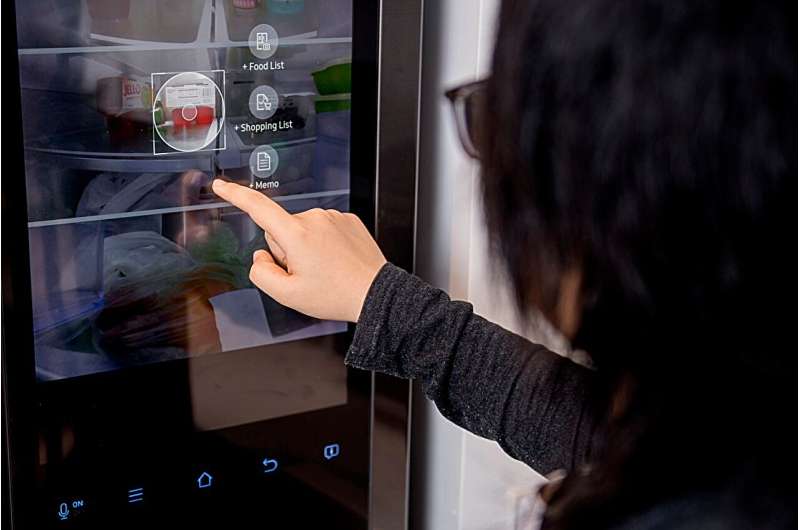
Our homes are getting smarter just about every working day. The future time you obtain a toaster, fridge or dishwasher, setup may possibly include connecting to your home WiFi network and downloading an application on your telephone.
But these interconnectivity will come with risk, claims David Choffnes, affiliate professor of computer system sciences at Northeastern University.
“We are moving from this notion the place the walls of our residence are our non-public room to now the spaces inside of the walls have all these units that connect around the net,” Choffnes states.
Ideally, intelligent household devices, if not recognized as Online of Things (IoT) units, make people’s life easier. Responsibilities like setting the thermostat, building your morning espresso or buying new ink for your printer could be effortlessly automated or accomplished by using your smartphone with some of these items.
“(But) when these items connect, both with every other or above the world-wide-web, they do so in a way that we can not see,” Choffnes says.
Some of these units are sharing out their spot, which in change permits other devices in their community community to track down them, Choffnes says. A local network in this context implies a team of linked devices within just a specific location like a residence.
“They’re also sending out other items of info that are one of a kind to the household, indicating that even if you try your greatest to preserve your privateness, change off monitoring on your phone, whether or not its iOS and Android, all of these mechanisms that you place in position to your safeguard yourself can slide aside,” Choffnes suggests.
“Trackers on the web can tell who you are by the collection of gadgets in your property for the reason that which is likely to be distinctive to you,” he adds.
New analysis by Choffnes and a crew of other folks sheds mild on the privacy and safety flaws of this emerging know-how classification. The workforce will present its investigation this 7 days at the ACM World-wide-web Measurement Conference in Montreal.
For the study, the crew examined 93 IoT gadgets to see how they interact inside of a nearby network.
The effects of the analysis have been illuminating, Choffnes points out.
“1 of the matters that we noticed is that devices will scan their regional community to determine out what is every other machine in your dwelling,” Choffnes adds. “For case in point, your Amazon sensible speaker could study if you have a clever fridge. It could learn about your printer. It may possibly master your title because if you have, for occasion, an Apple HomePod, commonly the default identify of that thing is your identify, like “Dave’s HomePod.'”
The group also identified safety problems with how the cellular applications connected with these units do the job.
“On Android, cell apps can get close to authorization limits that Android imposes, like access to geolocation or obtain to unique identifiers, by only querying units or sending messages to other equipment on the household community and getting them to inform the application the identical information that OS was maintaining absent from them,” he states.
Choffnes notes that Google has acknowledged the team’s findings and is working with them to create mitigation attempts that “could be executed by means of the Android OS, app evaluate procedures, and typical IoT standardization endeavours.”
Choffnes stresses that these units do not have to operate in this manner. It’s feasible for units to do the job interoperably without the need of these kinds of significant privacy and security hazards.
“There is certainly a way that they can explore just about every other with no exposing info that could be made use of to observe us,” Choffnes states.
In the research, the workforce points to a variety of possible options, like calling for more standardization amid these equipment. They point to the Matter sensible property protocol as a single example, even though they note that the method would not nonetheless tackle the certain vulnerabilities the team learned.
Tinanru Hu, a doctoral college student at Northeastern, and Daniel J. Dubois, an affiliate analysis scientist at Northeastern, were being amid the authors of the investigation.
Hu says firms haven’t been considerably incentivized to standardize. A single of the ambitions of the exploration is to support the general public know about these difficulties.
“Through our exploration, we want to make the user aware of this problem,” he suggests. “When a lot more customers know about the trouble, they can encourage the businesses toward the most effective privacy and protection standardization attempts.”
Regulations and extra federal government involvement could also enable curtail some of these challenges, the workforce notes, pointing to the EU Cyber Resilience Act and the U.S. Nationwide Cybersecurity Technique.
Quotation:
The sensible household tech inside your residence is fewer secure than you feel, research finds (2023, Oct 26)
retrieved 30 October 2023
from https://techxplore.com/information/2023-10-intelligent-residence-tech.html
This doc is subject to copyright. Aside from any fair dealing for the purpose of non-public research or research, no
aspect may perhaps be reproduced with no the penned authorization. The content is furnished for information applications only.






More Stories
Revitalize Your Building’s Exterior: The Magic of Softwashing
Four Key Focal Points for Efficient House Cleaning in St. Petersburg, FL
Are your home’s clever products leaking non-public information? Calgary researcher set to discover out